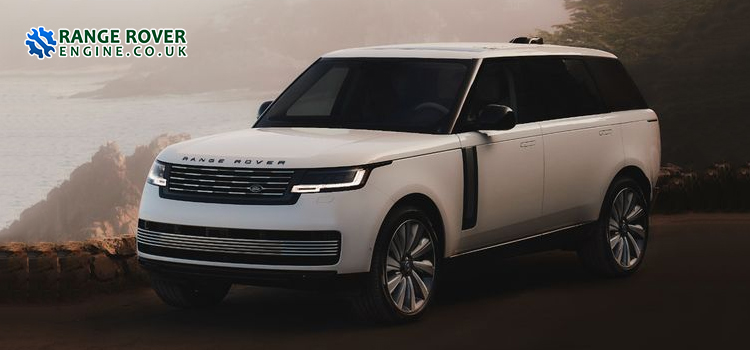Range Rover 3.0 Engine in Popular Models: From Vogue to Sport

The Range Rover 3.0 engine has played a crucial role in defining the luxury SUV segment. Known for its balance of power, efficiency, and refinement, this engine has been a staple in some of the most popular Range Rover models, including the Vogue and Sport. Whether new or reconditioned, the 3.0 engine is sought after for its impressive torque, smooth driving dynamics, and reliability. We explores the significance of the Range Rover 3.0 engine, its impact on different models, and why reconditioned engines are becoming a popular choice for owners seeking cost-effective solutions.
Evolution of the Range Rover 3.0 Engine
The Range Rover 3.0 engine has seen significant advancements over the years. Initially introduced as a powerful yet efficient alternative to larger displacement engines, the 3.0-liter unit has evolved with technology. Early models featured a V6 diesel engine, providing excellent fuel economy without compromising on performance. With advancements such as turbocharging and hybrid technology, the latest iterations of this engine offer greater efficiency and reduced emissions. The transition to mild-hybrid systems has also helped improve fuel economy, making the 3.0 engine a sustainable option for modern Range Rovers. Reconditioned engines have played a role in extending the life of older models, ensuring that owners can continue to enjoy their vehicles without the cost of a brand-new engine.
Performance Capabilities of the Range Rover 3.0 Engine
The performance of the Range Rover 3.0 engine varies depending on the model and configuration. In models like the Range Rover Vogue and Range Rover Sport, the engine delivers between 250 and 400 horsepower, depending on the variant. The combination of turbocharging and advanced fuel injection systems ensures a smooth and powerful drive. Additionally, the high torque output of this engine makes it ideal for off-road adventures and towing. The 3.0-liter engine also contributes to enhanced fuel efficiency compared to larger displacement engines, providing a perfect balance between power and economy. Many owners opt for reconditioned engines to maintain this level of performance without the hefty price tag of a factory-new unit.
Range Rover Vogue: Luxury and Efficiency with the 3.0 Engine
The Range Rover Vogue is one of the most luxurious models in the Range Rover lineup, and the 3.0 engine plays a significant role in its appeal. The engine offers a refined driving experience with smooth acceleration and impressive fuel efficiency. Advanced features such as intelligent all-wheel drive, adaptive air suspension, and dynamic response systems complement the engine’s capabilities, ensuring a premium ride. The Vogue’s spacious interior, combined with the power of the 3.0 engine, makes it a favorite among executives and luxury SUV enthusiasts. Many Vogue owners choose reconditioned engines when faced with the need for an engine replacement, as they provide the same level of performance at a reduced cost.
Range Rover Sport: Power and Agility with the 3.0 Engine
The Range Rover Sport is designed for those who seek a dynamic and sporty SUV experience. The 3.0 engine enhances the Sport’s performance by delivering quick acceleration, responsive handling, and strong towing capabilities. The inclusion of advanced drivetrain technologies such as Terrain Response and adaptive dynamics allows the Sport to tackle both urban roads and rugged trails with ease. The 3.0 engine’s efficiency also makes it a great choice for those who want a balance between performance and economy. Reconditioned engines for the Range Rover Sport have gained popularity, as they offer a reliable and budget-friendly option for owners looking to restore their vehicle’s power and efficiency.
Fuel Efficiency and Environmental Benefits of the 3.0 Engine
Despite its powerful performance, the Range Rover 3.0 engine is designed with fuel efficiency in mind. The integration of turbocharging and hybrid technology in newer models has significantly reduced fuel consumption and CO2 emissions. The mild-hybrid system, which utilizes regenerative braking, further enhances efficiency by reducing the load on the internal combustion engine. For owners of older Range Rover models, opting for a reconditioned engine with updated components can improve fuel efficiency and reduce environmental impact. The ability to reuse and refurbish engine components also contributes to sustainability by minimizing waste and the need for new raw materials.
Why Choose a Reconditioned Range Rover 3.0 Engine?
Reconditioned engines have become an attractive option for Range Rover owners who need an engine replacement. These engines undergo a rigorous refurbishment process, which includes disassembling, cleaning, and replacing worn-out components with high-quality parts. The result is a reliable and cost-effective alternative to purchasing a brand-new engine. Many reconditioned engines also come with warranties, providing peace of mind to buyers. Whether it’s for a Vogue or Sport model, choosing a reconditioned Range Rover engine allows owners to maintain their vehicle’s performance while saving money on repair costs.
Common Issues and Maintenance of the 3.0 Engine
Like any high-performance engine, the Range Rover 3.0 engines requires regular maintenance to ensure longevity. Common issues include turbocharger wear, timing chain tensioner problems, and cooling system failures. Proper servicing, including timely oil changes and using high-quality engine components, can prevent major issues. For those experiencing engine failure, reconditioned engines offer a viable solution without the expense of a brand-new replacement. Many reputable suppliers offer reconditioned Range Rover engines that meet or exceed original specifications, ensuring that owners can continue enjoying their vehicles for years to come.
The Future of the Range Rover 3.0 Engine
As the automotive industry moves towards electrification, the future of the Range Rover 3.0 engines is evolving. Hybrid and plug-in hybrid models featuring the 3.0-liter engine are becoming more common, offering a combination of internal combustion power and electric efficiency. Innovations such as improved battery integration and more efficient turbocharging systems are likely to enhance the performance and sustainability of this engine. While new models will incorporate the latest advancements, reconditioned engines will continue to serve as a valuable option for those looking to extend the lifespan of their existing Range Rover vehicles.


